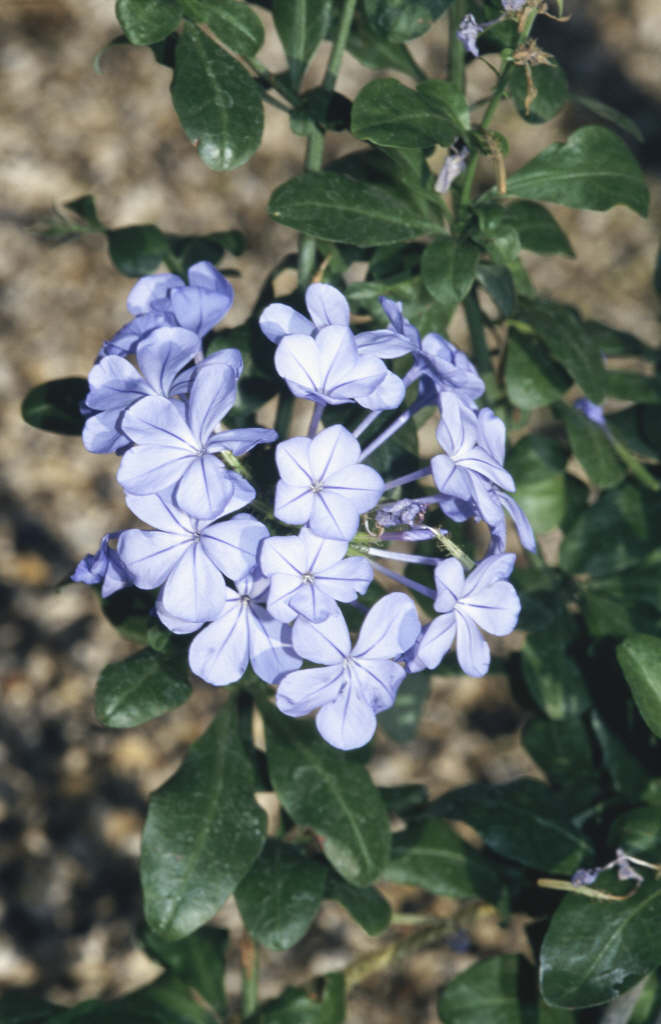Size
Ultimate height
2.5–4 metresTime to ultimate height
5–10 yearsUltimate spread
1–1.5 metresGrowing conditions
Moisture
Well–drainedpH
Acid, Alkaline, NeutralColour & scent
| Stem | Flower | Foliage | Fruit | |
| Spring | Green | |||
|---|---|---|---|---|
| Summer | Blue | Green | ||
| Autumn | Blue | Green | ||
| Winter | Green |
Position
- Full sun
Aspect
South–facing or West–facing or East–facing
Exposure
ShelteredDrought resistance
Yes Hardiness
H2Botanical details
- Family
- Plumbaginaceae
- Native to GB / Ireland
- No
- Foliage
- Evergreen
- Habit
- Climbing, Bushy
- Potentially harmful
- Skin irritant. Wear gloves and other protective equipment when handling. Pets: Skin irritant - Harmful if eaten, except ripe fruit. Wear gloves and other protective equipment when handling. Pets (dogs): Skin irritant - for further information and contact numbers regarding pets, see the HTA guide to potentially harmful plants
- Genus
Plumbago can be annuals, perennials or scrambling evergreen shrubs, with simple leaves and short terminal racemes of salver-shaped flowers with 5 spreading lobes
- Name status
Correct
- Plant range
- S Africa
How to grow
Cultivation
Under glass grow in peat-free, loam-based compost in full light, water freely when in growth and apply a balanced liquid fertiliser monthly . Keep barely moist when dormant and top-dress or repot in spring. Support stems. Can be grown outdoors in frost-free areas in fertile soil. May need restrictive pruning under glass
Propagation
Propagate by seed at 13-18°C in spring, or take semi-hardwood cuttings in mid-summer with bottom heat
Suggested planting locations and garden types
- City and courtyard gardens
- Mediterranean climate plants
- Patio and container plants
- Wall side borders
Pruning
Pruning group 12 in early spring
Pests
May be susceptible to glasshouse red spider mite and glasshouse whitefly
Diseases
Generally disease-free
Get involved
The Royal Horticultural Society is the UK’s leading gardening charity. We aim to enrich everyone’s life through plants, and make the UK a greener and more beautiful place.

